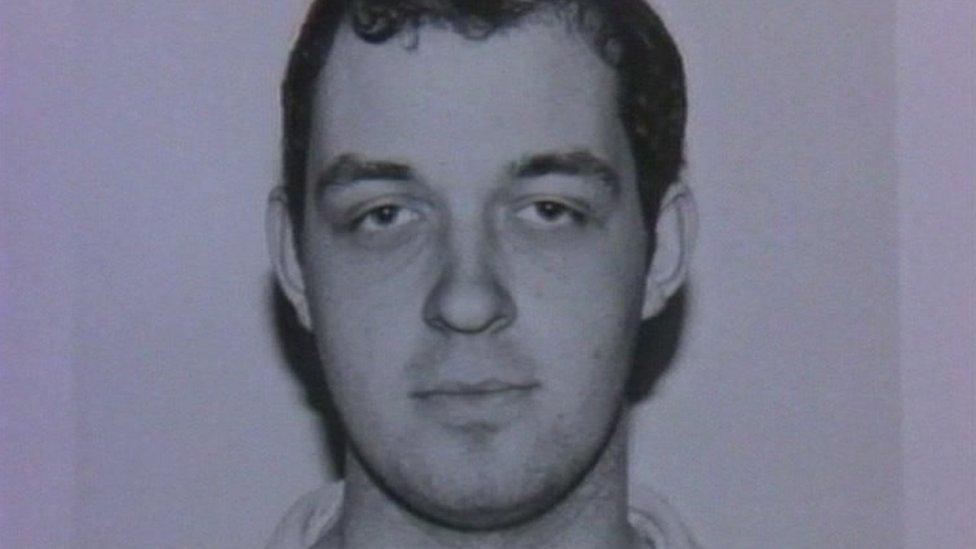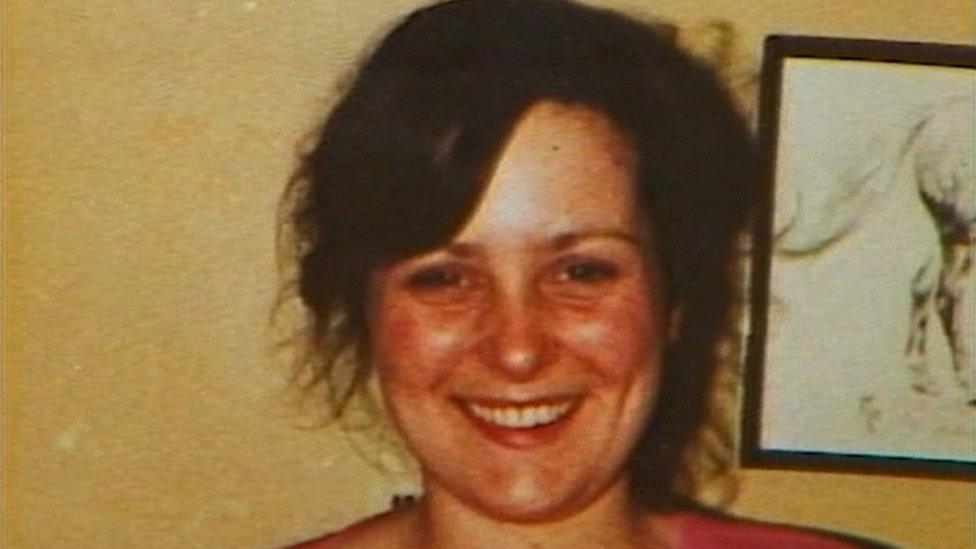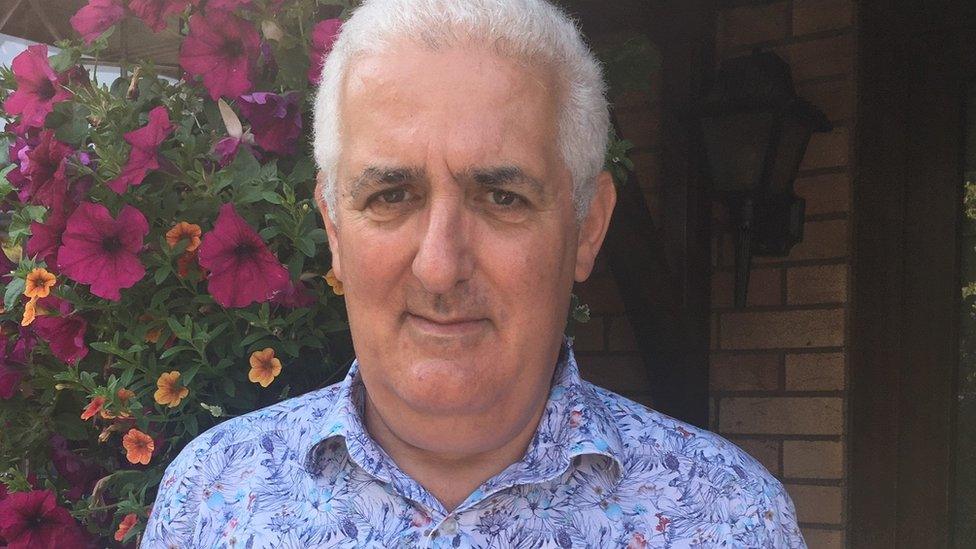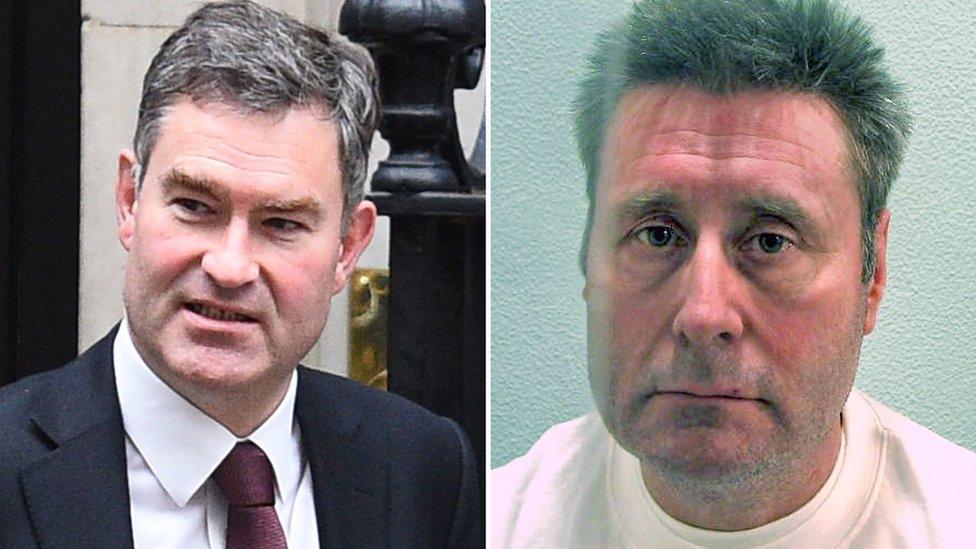Family's appeal against Leicestershire double murderer's release rejected
- Published

Paul Bostock was described as "a loner... with an obsession with weapons, with the occult and with black magic"
The family of one of two women stabbed to death have called for a "major overhaul" after their appeal against a killer's release was rejected.
Paul Bostock, 53, has been in prison since pleading guilty in 1986 to killing two women in Leicestershire.
Bostock - described as a "sadist" in court - is due to be freed, despite the family of one victim appealing against it over fears he could kill again.
The Ministry of Justice confirmed this appeal did not meet their requirements.
In 1983 Bostock stabbed and killed 33-year-old pet beautician Caroline Osborne while she was walking dogs in Aylestone Meadows in Leicester.

Bostock killed his first victim Caroline Osborne when he was just 16
Two years later he killed Amanda Weedon, a 21-year-old nurse.
Beaumont Leys resident Bostock was described as "a loner... with an obsession with weapons, with the occult and with black magic".
Leicester Crown Court heard both killings were "ferocious" and had an "element of sexual sadism".
Shortly before he was sentenced to life at the age of 19 he wrote: "I'm an animal who should be prevented from walking the streets again."

Amanda Weedon was killed near the hospital she worked at just weeks before her wedding day
But in August the Parole Board decided he was fit for release.
Martin Weedon, Ms Weedon's now 61-year-old brother, believes it is still too early and appealed against the decision through the Ministry of Justice (MoJ).
But the MoJ did not pass this appeal on to the Parole Board, meaning Bostock's release will continue.

Martin Weedon said he believed Paul Bostock should stay in prison until he was "an OAP", lacking the strength to reoffend
Mr Weedon said he felt the system was "too balanced" in favour of offenders and believed there needed to be reform to address this and reduce reoffending rates.
He added: "We just felt frustrated. It felt [like our appeal was] pointless.
"In our view this was the system just going through the motions.
"The only solace in all this is that our father Horace never had to hear this news."
A number of MPs have also agreed to raise the matter with authorities such as the Lord Chancellor.
A spokeswoman for the MoJ said its "sympathies" go to the families but parole decisions could only be challenged if there was evidence "the process has been followed incorrectly or that the decision is irrational".
She confirmed Mr Weedon's appeal did not meet this threshold.
But she added: "Offenders like Paul Bostock are subject to strict supervision for the rest of their lives."

Follow BBC East Midlands on Facebook, external, Twitter, external, or Instagram, external. Send your story ideas to eastmidsnews@bbc.co.uk.
- Published13 August 2020

- Published4 February 2019
